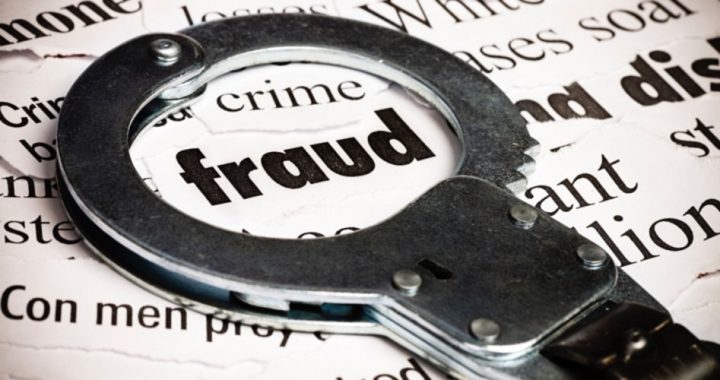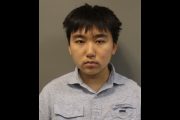
Democrats like to tout the reliability of our elections and say that voter fraud doesn’t exist to a large extent. But why do we continue to see examples of it?
Nine people face felony charges in Los Angeles in connection with a voter fraud scheme, which involved giving money and cigarettes to residents of the city’s Skid Row area. Skid Row is an extremely poor section of Los Angeles where many of the city’s homeless population dwell.
The charges allege that the defendants gave away small amounts of money and cigarettes to homeless people in order to gain false signatures on official campaign petitions connected with upcoming ballot initiatives in the Los Angeles area and statewide.
The ballot initiatives included an L.A. County plan to reduce jail times and expand oversight of the sheriff’s department and a local initiative in Long Beach to improve safety for hotel workers. Statewide measures included a plan to reduce the number of felons considered non-violent and a measure meant to increase taxes on millionaires and property taxes on business owners. All of the initiatives took place between 2016 and 2018.
In California, to put such initiatives on the ballot requires the signatures of registered voters. The defendants are accused of gaining those signatures fraudulently.
Five of the defendants appeared in court last Tuesday. Thirty-eight-year-old Kirkland Washington, 62-year-old Richard Howard, 42-year-old Rose Sweeny, 59-year-old Christopher Williams and 61-year-old Norman Hall all pled not guilty to charges of registering a fictitious person, registering a non-existent person, circulating a petition with false names, and using false names on a petition.
Four other defendants, 53-year-old Harold Bennett, 36-year-old Louis Wise, 35-year-old Jakara Mardis, and 44-year-old Nickey Huntley, are also charged but have yet to be arraigned.
Washington, Bennett, and Wise are all charged with eight counts and could face up to six and one-half years in prison if convicted. The remaining defendants each face four counts and could face up to four years and eight months if convicted.
Howard had previously served 60 days in jail on similar charges. Bennett and Wise had similar charges dismissed previously.
At least one officer on the Skid Row beat doesn’t think the charges will do much good. “The message got sent that this is not a big deal,” said Officer Deon Joseph. “They’ll go right back out and do the same thing.”
“We didn’t charge any homeless people,” according to Shiara Davila-Morales, a spokesperson for the district attorney’s office.
“It’s not really voter fraud, in terms of illegal voting and manipulation,” said Dean Logan, the head of Los Angeles County elections. “But I am certainly concerned about any activity that causes voters to lose faith in the process.”
But actually Mr. Logan, it is a form of voter fraud. The defendants reportedly used false signatures of actual registered voters unbeknownst to them. That makes all four of the ballot measures affected suspect, since no one really knows how many of the signatures on those petitions were legitimate.
The defendants purportedly set up tables in portions of Skid Row and offered pocket change and cigarettes in exchange for forged signatures of registered voters. Homeless people were generally given a dollar or less for a fraudulent signature. The scheme was eventually busted by undercover officers posing as homeless people.
The Los Angeles incident calls to mind Milwaukee’s infamous “Smokes for Votes” scandal in the 2000 election, in which Democrat volunteers trolled the city’s streets and emergency shelters bribing homeless people to vote with cigarettes. That year, Al Gore won Wisconsin by a mere 5,700 votes. In the Milwaukee case, a New York City socialite Connie Milstein was caught and forced to pay a meaningless (to her) $5,000 civil fine.
Milstein alone probably didn’t deliver Wisconsin to Gore in 2000 but she was the only one who was caught. Who knows how many Milsteins there were handing out cancer sticks in Wisconsin in 2000?
Then there’s Florida. Ever since the election fiasco in 2000 in which Al Gore’s team attempted an outright theft of the presidency, the state has been under a microscope and little appears to have improved if you go by this year’s mid-term elections.
Outgoing governor and newly elected senator Rick Scott (R ) and incoming governor Ron DeSantis (R ) both survived vicious attempts of election theft during highly contentious recounts. However, the reliability of the election system, primarily in heavily Democrat Broward and Palm Beach Counties, has again been called into serious question. Reports of lost votes, mis-filed votes, and purposely missed deadlines have again cast a shadow on this year’s elections.
Democrats like to tout the reliability of our election process and consistently say that voter fraud is not a big problem. But make no mistake, voter fraud is a huge problem — especially on the left side of the political spectrum.
Photo: RapidEye/E+/Getty Images




